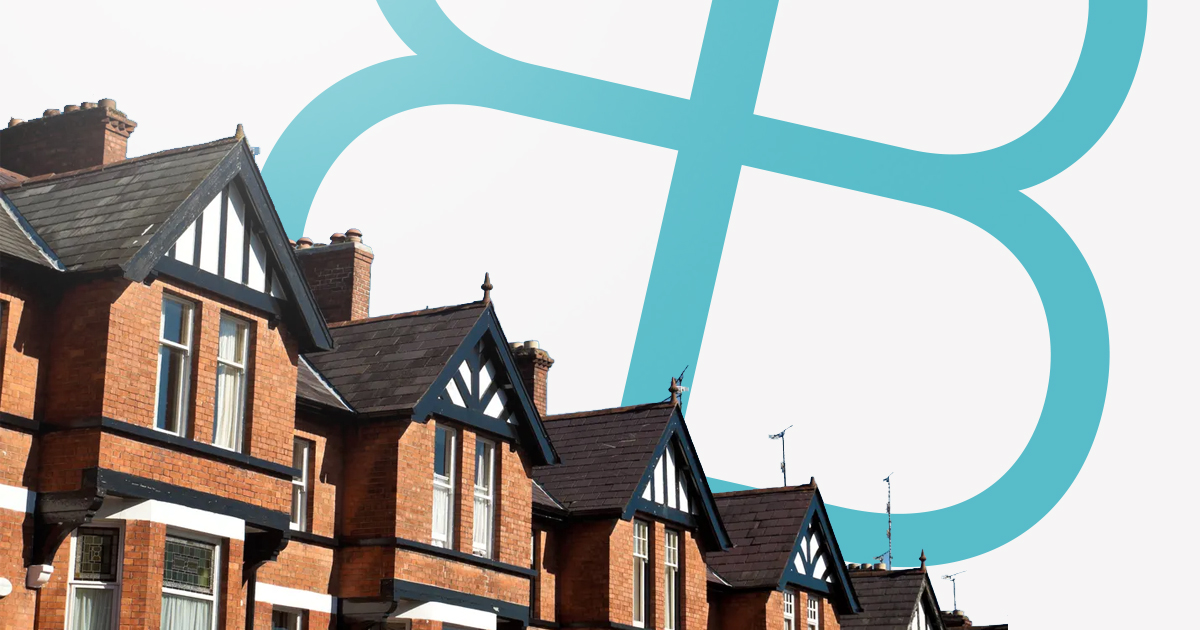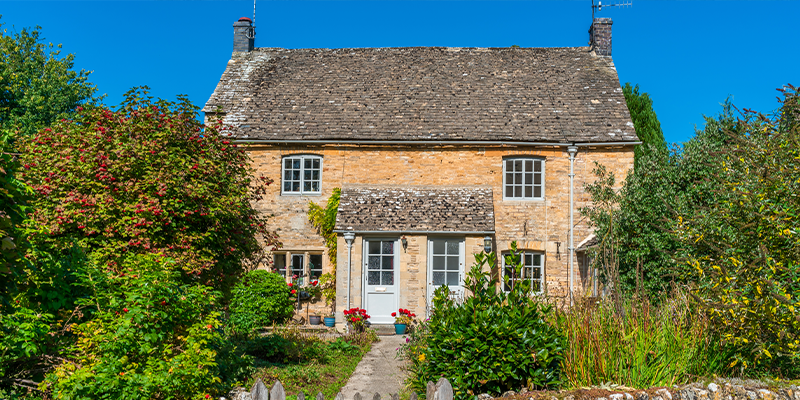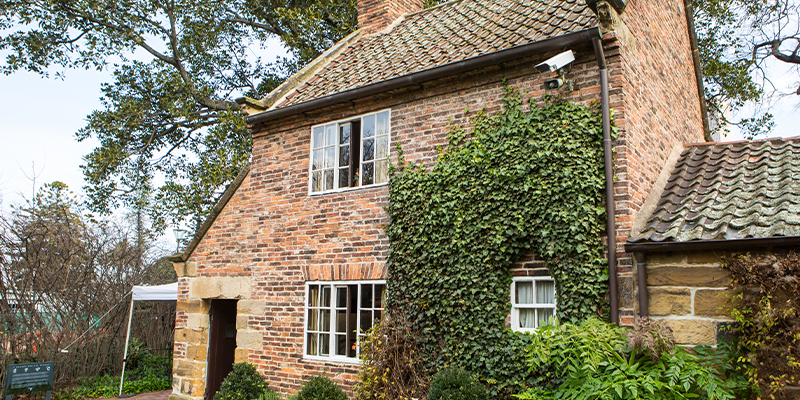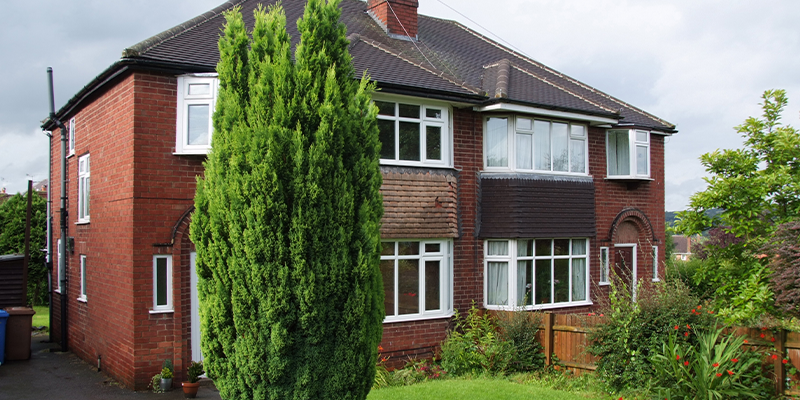Can You Get a Mortgage with a Zero Hour Contract?

With almost 3% of the UK population currently employed on a zero hour contract, there are many people who feel it will be difficult to get a mortgage.
Lenders will always want to check you can afford a mortgage and being on a zero hour contract can prove tricky. Zero hour contracts can mean that one week you work 40 hours and the next your employer doesn’t require you to work any making your income hard to predict.
The good news is that despite being on a zero hour contract you should still be able to get a mortgage. This guide dives into the details of zero hour contract mortgages and looks at some other unusual income types too.
Zero Hour Contracts and Mortgages
In the UK every lender conducts an affordability calculation for a standard mortgage.
The general rule around affordability is that the lender will extend borrowing up to 4.5 times your annual salary.
This isn’t a hard and fast rule though and some lenders have lower (or higher) affordability thresholds.
Zero hour contracts are a specific contract of employment that allows an employer to use staff flexibly.
In short, if they need you to work more hours, they can offer you more hours and if the business doesn’t need labour at all, they can reduce your work hours back down to zero.

For employers, zero hour contracts allow them to staff the business according to the actual needs of the business.
For many employees these contracts can be confusing although some find that the flexible working hours suit their lifestyle.
When combining a zero hour contract and a mortgage a lender will look at the amount of hours you typically work, and your income earned so far.
This helps them get a rough idea of your working patterns and income and allows them to run an affordability check on that basis.
What Criteria Will a Lender Check if You’re on a Zero Hour Contract?
There are a few things areas a lender will look at specifically with zero hour contracts and it is worth noting at this point that not all lenders will consider zero hours contracts.
The ones that do will normally look at three things.
Job Security If you’re on a zero hour contract a lender will be keen to see that you have job security.
They normally ask how long you have worked in the industry that you are in or how long you have worked for your current employer.

Most mainstream lenders require a minimum 12-month work history with your current employer before considering a zero-hour contract.
If you can demonstrate years of experience in your field, then a lender is much more likely to accept your zero hour contract.
Working Patterns Because zero hour contracts can be used by employers to fit the needs of the business a lender will want a good overview of the actual hours you work.
For example, if you have been working less hours over the past year, a lender will probably see it as a risk that your earning potential is declining over time.
Some smaller lenders may require just 3 months’ worth of payslips but there are more strict lenders that will request 18 months of payslips.
This allows them to check that your hours haven’t been decreasing over a period of time and build an accurate picture of what your actual annual income is.
Working Out Your Income Different lenders calculate your income in different ways, but the most common practice is to take an average income over the amount of time that your payslips cover.
For example, if you provide 18 months of payslips a lender might take an average of the entire 18 months, an average of the last 12 months or even an average of the latest 3 payslips.
Free consultations are available in the UK.
Get Started NowZero Hour Contract Lenders
It is a great idea to discuss the lenders’ criteria with your mortgage broker so that you have all the evidence you need for your mortgage application.
Your broker will look at lenders who have criteria that best fits your personal circumstances and if you’re on a zero hour contract it is a no brainer to use a broker to get your mortgage.
This is because obtaining a mortgage without a broker will likely result in a fruitless search trying to find a lender who will accept your income.
There are not many lenders that will accept zero hour contracts and most of them are not your typical high street lender.
A broker will be able to find a suitable lender with ease and then assist you with the mortgage application.

The great news is that with Boon Brokers, our advice is free.
As you’re probably aware, being on a zero hour contract doesn’t mean you’re on a low income and the most important thing to bear in mind is that a lender is only concerned that you can afford the mortgage.
Getting a zero hour contract mortgage is a matter of finding a lender that accepts the income and evidencing you can afford the mortgage.
It might seem daunting initially, but with the right help from a broker it can be a straightforward and stress-free process.
Are Zero Hour Mortgages Different to Normal Mortgages?
The answer here is simply no. The product and deals available to you with a zero hour contract will be the same as someone on a more traditional employment contract.
You won’t be paying a premium fee for a zero hour mortgage compared to an applicant with a traditional employment contract.
With that said, the amount of lenders you will be able to approach are limited compared to someone applying with a traditional employment contract.
This means that the competition between lenders is reduced, and you might find that the deal you’re offered isn’t the best deal that would be available to someone with a different contract type.
Overall, you shouldn’t find yourself penalised for having a zero hour contract and any deal offered to you by your chosen lender will be the same as someone applying with a standard employment contract.
What Our Clients Have To Say
Buy to Let Mortgages and Zero Hour Contracts
You might be wondering whether you can get a buy to let mortgage with your zero hour contract.
You will probably be surprised to learn that in some cases it can be much easier to get a buy to let mortgage with a zero hour contract compared to a residential mortgage.
Primarily, a buy to let mortgage normally requires a higher minimum deposit amount, with many lenders asking for at least 25% put down up front.

This means that the remaining amount (mortgage amount) is lower, and you won’t need to demonstrate as much income to pass affordability.
For example, borrowing 75% on a buy to let is normally easier than evidencing affordability on a 95% residential mortgage because you wouldn’t be borrowing as much on the same property.
Also, some buy to let lenders will not even request any income from you.
These lenders determine how much you can borrow from the rental assessment of your property, rather than your personal financial position.
Other Types of Unusual Income and Mortgages
There are a number of unusual income or non-traditional income types that select lenders will look at. At Boon Brokers we have expertise in placing mortgages with unusual income types, the most common of which are;
Company Directors Income A company director might not take a salary or might take a combination of salary and dividends. Some company directors choose to keep money in business accounts and don’t take much in the way of income at all.
The great news is that Boon Brokers have access to a few business-friendly lenders, some of which will even take the company accounts for their income requirements.
Self Employed Historically many self-employed people have struggled to get a mortgage or demonstrate income. Don’t despair though, there are lenders that will look at your Tax Calculations & Tax Year Overviews and calculate your income from that and even lenders that will look at your latest year’s earnings alone.
This last point can be especially helpful if you are only recently self employed or if you saw an income drop during the pandemic, but your latest year has shown a bounce back in income.
You WILL need to have been trading for at least a year though in order to evidence your self-employed income to a lender.
Contractors Many contractors in the UK have special tax arrangements which make it difficult for them to calculate their income for a mortgage. Lenders will look at your income and then calculate how much you can borrow.

In fact, contractor mortgages can be as straightforward for a lender as a PAYE employee application.
Foreign/Overseas Income Again, like other income types mentioned, there are lenders that will look at overseas income, but it must be documented correctly and accurately in order for them to look at it.
Foreign income can be problematic if you haven’t been in the UK for the 180 days each year required for taxation mainly because there isn’t official UK documentation to evidence this income.
If you’re concerned about overseas income when applying for a mortgage, discuss it with Boon Brokers and we will be able to offer advice specific to your circumstances.
If you get paid cash in hand, chances are you will not get a mortgage unless you have correctly evidenced your payments and paid the tax owed on that money.
For example, a self-employed person may well receive cash payments that they will need to declare to HMRC in order to generate the Tax Calculation & Tax Year Overviews needed for a mortgage application.
Cash in hand payments outside of the tax regime will not be considered by a mortgage lender for income requirements.
How Much Deposit Should I Have?
The answer to this in almost all mortgage cases is to have as much deposit put down as you can afford. This will mean that you need to borrow less, and the monthly payments and interest will be reduced compared to a borrowing with a lower deposit amount.
With a zero hour contract you might find the lender you’re looking to use has a higher minimum deposit so you will need to find out the mortgage deposit requirements from your broker.
Deposits range between lenders that offer mortgages to those with zero hour contracts and you can get a mortgage with as little as 5% deposit.
Remember that the lower the deposit amount you can put down the higher the risk for the lender – it might negatively impact a mortgage application if your affordability is tight with a low deposit.
How Long Would the Mortgage Application Take?
At the point of application your broker will ask you to supply them with everything the lender will need to process the application.
This can be time consuming, especially if a lender wants 18 months of payslips.
Once you have collated the required documentation the application can be submitted, and the mortgage underwriter will look over everything to make a decision.

They may come back to you with further questions, or it might be a fast and straightforward application.
In this respect, a zero hour contract mortgage can be processed in as little as few hours or could take a few weeks.
Your broker will have a full understanding of your situation and the evidence you’re providing to the lender and will be best placed to give a more specific timeframe regarding how long the mortgage application will take.
Conclusion
Zero hour contracts are considered income by a number of lenders, and you shouldn’t automatically think you won’t be able to get a mortgage.
There may be a few more hoops to jump through in order to evidence your income but some lenders are very good at lending to people with unusual income types.
At Boon Brokers we are proud of our track record with unusual income types and offer free advice.
Boon Brokers is a UK whole of market mortgage, insurance and equity release broker call us to discuss your unusual income type and see how we can help you today!
Gerard BoonB.A. (Hons), CeMAP, CeRER
Gerard is a co-founder and partner of Boon Brokers. Having studied many areas of financial services at the University of Leeds, and following completion of his CeMAP and CeRER qualifications, Gerard has acquired a vast knowledge of the mortgage, insurance and equity release industry.Related Articles
- How To Get A Mortgage With A New Job
- What Proof Of Income Is Needed For A Mortgage?
- Should I Use A Broker Or Go Direct?
- How To Get A Mortgage After Bankruptcy
- What Is A Guarantor Mortgage
- How To Improve Your Chances Of Getting A Mortgage
- How To Get A Mortgage With Bad Credit
- The House Buying Process
- How To Buy A House After Lockdown
- How Does Being Self Employed Affect A Joint Mortgage?
- What Is A Tenants In Common Agreement?
- What Documents Are Needed For A Mortgage?
 Authorised and regulated by the Financial Conduct Authority. No: 973757
Authorised and regulated by the Financial Conduct Authority. No: 973757




